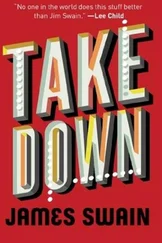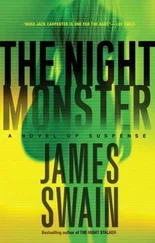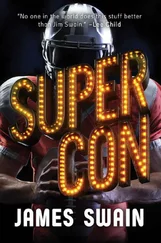Jenkins greeted them with the respectful courtesy befitting federal agents. A pear-shaped Southerner with watery eyes and hair combed straight back, his rumpled white shirt hung off his body like a gunny sack; down its center ran a thin necktie.
Jenkins waved at two stiff-backed chairs in front of his desk. Linderman and Wood sat down and declined his offer of a cold drink.
“After our conversation, I figured you’d come, so I took it upon myself to cancel the prisoners’ yard time today,” Jenkins said. “Crutch is in his cell, as are the other inmates in his building. I was watching him on a surveillance camera when you gentlemen came in.”
“You have surveillance cameras in your cells?” Linderman asked.
“No, afraid we can’t afford that.” Jenkins turned the computer on his desk so the screen faced them. “But we do have cameras in the cellblocks which watch the common areas. The cameras lenses can be electronically shifted to stare into cells. It lets us spy on the inmates if needed.”
Linderman stared at the figure on the screen. Crutch sat on a cot with a pair of earphones on his head, his hands gliding through space like an orchestra leader, his fingers plucking each note out of the air without losing tempo. Linderman sometimes engaged in the same ritual when listening to music, and guessed Crutch was listening to Bach or Beethoven, the music beautiful beyond plight and time.
“Do all your inmates have private cells?” Linderman asked.
“No. The majority live in a barracks,” Jenkins replied. “Crutch asked to be put in a private. Claimed that being small put him at a disadvantage with the other inmates.”
“Is his cell regularly checked?” Wood asked.
“We have over fourteen hundred inmates in this facility. We don’t check cells unless the inmate is a problem.”
“So his cell hasn’t been recently checked,” Wood said.
“That is correct,” Jenkins said stiffly.
“Crutch was paying another inmates two hundred dollars a week to use a cell phone,” Linderman said. “How would he get his hands on that kind of money?”
“Someone probably sent it to him through the Inmate Trust Fund,” the warden replied. “Inmates are allowed to have up to five thousand dollars in their accounts.”
“Does anyone check where the money goes?” Wood asked.
“No.” The crossfire of questions was not to Jenkins’ liking, and he said, “If you don’t mind, I’d like to hear what you think Crutch is doing. I realize that talking on a cell phone is against the rules, but the man isn’t a drug dealer, or involved in organized crime. What kind of crimes can he be committing?”
“Jason Crutchfield is a serial killer,” Linderman explained. “He’s communicating to another serial killer who abducted a teenage boy yesterday.”
The blood drained from Jenkins’ face and for a moment he said nothing.
“You’re absolutely positive about this,” the warden muttered.
The two FBI agents nodded stiffly.
“This is just incredible,” Jenkins said. “Just the other day, I saw Crutch in the chapel. He was in the front row, deep in prayer.”
Linderman wanted to ask Jenkins if he’d overheard who Crutch was praying to, but knew the remark would anger him.
“We need to see the records department where Crutch works,” Linderman said. “Once we’re done there, I want to search his cell.”
Jenkins rose from his chair.
“Follow me,” the warden said.
The basement of the administration building was cold and damp and accessed only by stairs. Jenkins unlocked the door to the records department by punching a five-digit code into the lock. The door swung in, and they entered.
The records department was a low-ceilinged room with beige filing cabinets lining the walls, and three stainless steel desks. Except for a large clock on the wall, the room was void of decoration.
Jenkins flipped on the overhead lights. They were florescent, and painful to the eyes. Linderman stared at the Dell computers sitting on each desk.
“Does Crutch have access to these computers?” Linderman asked.
“Yes, he does,” Jenkins said. “The department’s administrator is in the process of transferring all of the prison’s paper files into the prison’s computer’s data base. Crutch is one of our better data processors.”
“How often is he down here?” Linderman asked.
“Five days a week.”
“Did Crutch have Internet access?”
“No, of course not. Inmates are not allowed to use the Internet.”
“So his computer doesn’t have Internet access,” Wood said.
“That’s right. I just told you that.”
“Do any of the other computers have Internet access?” Linderman asked.
“I honestly don’t know,” the warden said.
“So there’s a chance that one of these other computers has Internet access, and Crutch might have gotten on the Internet by using it,” Wood chimed in.
“Perhaps,” Jenkins said, growing red in the face.
“Please turn the computers on so we can check,” Linderman said.
Jenkins powered up each of the computers. It was obvious Jenkins didn’t like to have his authority challenged, only Linderman saw no other choice. The Internet was a dangerous weapon in the wrong hands. In Nevada, a twisted killer incarcerated in Ely State Prison had managed to track the singer Madonna’s whereabouts by using Google and some old-fashioned ingenuity, and had made her life a living hell until the authorities had figured out what he was up to.
Linderman and Wood watched the computers come to life. One computer had a different screen than the other three, and required a password to enter.
“Whose computer is this?” Linderman asked.
“That belongs to Alvin Hodges, the records department administrator,” Jenkins explained. “He’s off today. His wife is expecting their first child.”
“Do you know the password?” Linderman asked.
“I’m afraid only Alvin does.”
“I need you to call him and get it.”
“But why is that computer important?” Jenkins asked, growing frustrated. “Crutch doesn’t use it. His computer is on the other side of the room.”
“Look at how the desks are situated,” Linderman said. “Crutch can sit at his desk, and spy on Hodges while he’s working on his computer. Crutch may have seen Hodges type in his password. He might be getting on Hodges’ computer when he’s not here, and going onto the Internet.”
“Crutch is only allowed in the records room when Hodges is here,” the warden said. “He can’t get on Hodges’ computer, even if he wanted to.”
“What if Hodges goes to the bathroom, or leaves for a break?” Linderman asked. “That would give Crutch time. I need to get on this computer.”
The warden shook his head and muttered “Very well,” under his breath. He spent the next few minutes tracking down Hodges on the phone, and getting the password from him. Hanging up, he said, “The password is Colette. It was Hodges’ mother’s name.”
“Did his wife have her baby?” Linderman asked.
“Yes. A six pound little boy. They’re both doing fine.”
“Glad to hear it.”
Linderman sat at Hodges’ computer and entered the password into the box on the screen. A screen saver appeared filled with program icons. One was for Windows Internet Explorer. He clicked the mouse over it, and was taken to CNN.com. By clicking the mouse on the down arrow next to the web site’s domain name, a list of web sites recently visited on the computer appeared. The names for two sites appeared. The investment firm of Charles Schwab, and a Jacksonville-based bicycling club.
“Does Hodges like to ride bikes?” Linderman asked.
“It’s his passion,” the warden said.
Читать дальше












